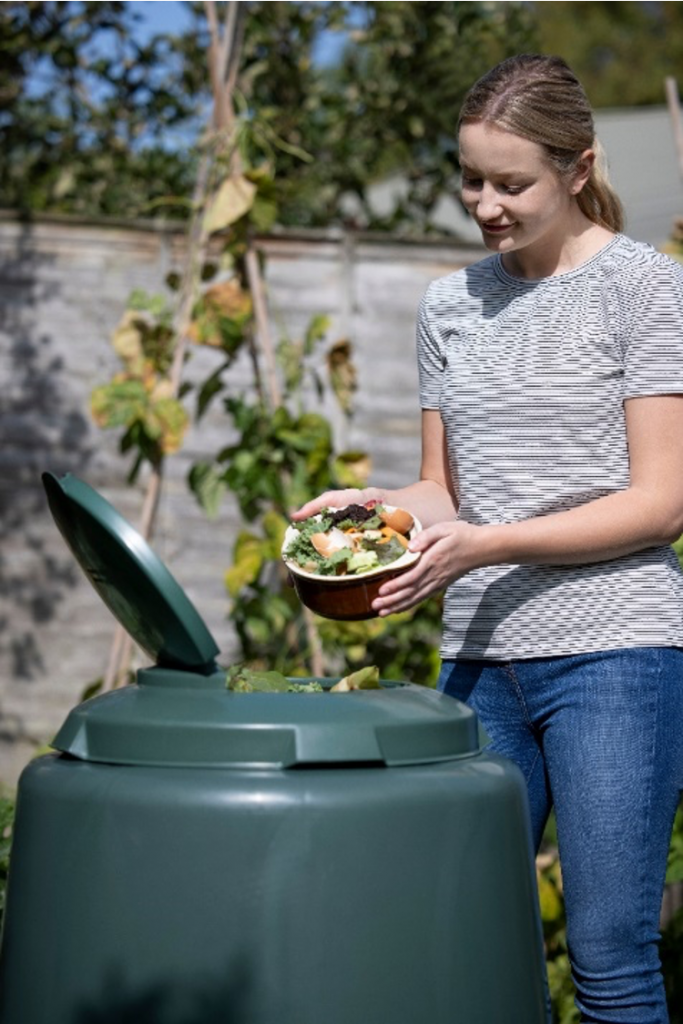Sustainability is Relative
By Oran Lichtman, Be Green Living Intern
What do you think of when you hear “sustainability”? Is it composting? Is it carpooling to reduce gas usage or maybe investing in alternative energies? When discussing sustainability, the first thing that needs to be defined is what “sustainability” even means. Without writing an entire essay on the subject, the Cambridge Online Dictionary defines sustainability as simply, “the quality of being able to continue over a long period of time.” Recently, as the environmentalism movement has been growing, sustainability has become a larger concept where, “[pursuing] sustainability is to create and maintain the conditions under which humans and nature can exist in productive harmony to support present and future generations” (EPA, 2021). This inherently interdisciplinary idea of having humans and nature live in “productive harmony” includes everything from food systems to policy and from culture to technology, all within the context of human geography.
So, keeping this in mind, how can we achieve this “productive harmony” with the environment? What is the key that will unlock our sustainable future? Well, the simple answer is that there is no single key. The reason human geography is specifically mentioned is because the solutions depend on the people. A sustainable solution changes to the needs of a people and the resources available to them. Sustainability itself needs to be seen as small solutions that, when put together, result in this kind of coexistence.
Let us look at composting. Composting is a wonderful solution to managing agricultural waste, food, and garden waste. It increases productivity while decreasing carbon footprints and maintains soil health while lessening the need for chemical fertilizers (EPA, 2021). But is this a sustainable solution in every situation? Breaking it down, no pun intended, compost needs three components: brown plant matter to provide carbon, green matter to provide nitrogen, and plenty of water to facilitate decomposition (EPA, 2021). This means that in the context of a Maryland summer this process happens effortlessly, our hot, humid, rainy weather provides the ideal habitat for bacteria and fungi to enjoy all the organic matter put in the compost bin. But not all states have the same climate as the Chesapeake Bay watershed and bringing this simple example of composting into another area may not yield the same results. Take the arid climate of Arizona, for example, an area which can get an annual average rainfall of 3in – 40in (ASU, 2021), as compared to Maryland’s of 60in per year or more (MMOL, 2020). Should an area where droughts are a serious problem prioritize using water for composting rather than drinking, cooking, or farming? Perhaps in this instance it may be more sustainable not to take the “organic” route and use chemical fertilizers instead of compost to minimize water usage. The composting conundrum gets even more complicated when placed in the context of urban settings versus rural.

Composting in a rural setting is relatively easy; a farmer, or resident, can just have a personal composting bin that they use in their fields and maintain themselves. However, composting in an urban setting brings up myriad other questions: how will it be collected large-scale, where will it come from, and where will a city’s worth of compostable matter even go without it interfering with the lives of its inhabitants? The big issue of pest management also comes up. In a more isolated rural setting, a simple fencing might do to keep wild animals out, anything that gets through will not have a large impact since it will be at a far enough distance from the residents. But in contrast, a highly populated city has pests in proximity with humans, and large-scale composting would further what could become a larger human health issue should they get into the compost. Montgomery county even has zoning limits that prevent this kind of facility from being constructed and control this kind of issue, and others including polluting runoff (MCPB, 2020). Implementing a city-wide composting program means that governmental bureaucracy must navigate the intricacies of establishing a new infrastructure system with people to pay, communities and local governments to interact with, and finding something to do with what may be literal tons of organic waste. So, here, composting may be a possible solution, but time, effort, and money needs to be invested to get a program like this started. It should be said that certainly, on the individual level residents can make compost themselves and use it. But within the context of a highly populated area where people likely live-in apartments or town houses, they might not have the space for a garden and therefore maybe not even have a need for compost. The bigger idea here is that reaching that “productive harmony” may require thinking outside the box and considering solutions other than an idea as simple as composting.
Sustainability itself is a lot of things; it is as a puzzle where each situation defines its solution and composting is just one piece that fits perfectly in certain situations but struggles in others. Just like other sustainable solutions, everything is relative. Each solution needs to be changed and manipulated to meet the needs of those involved; wind turbines cannot work in a forest nor will solar power work well underwater. Interdisciplinary issues require interdisciplinary solutions and when these solutions can build on top of each other our sustainable future will be within reach.

Sources:
Wood, G. (2012) Sustainability Studies: A Systems Literacy Approach. Sustainability: A Comprehensive Foundation http://cnx.org/contents/b0975e73-fd5a-495f-90fa-d8e5ab7744c1@5
Theis, T. (2012) Challenges for Sustainability. Sustainability: A Comprehensive Foundation http://cnx.org/contents/bc757e0b-8550-4960-a9d6-1e610cc89c00@5
Environmental Protection Agency (EPA) (2021) Learn about Sustainability Learn About Sustainability | Sustainability | US EPA
Environmental Protection Agency (EPA) (2021) Composting at Home Composting At Home | Reduce, Reuse, Recycle | US EPA
Cambridge Dictionary (2021) Sustainability SUSTAINABILITY | meaning in the Cambridge English Dictionary
Arizona State University (ASU) (2021) Arizona Climate Climate – Arizona State Climate Office (asu.edu)
Maryland Manual On-Line (MMOL) (2020) Maryland at a Glance Maryland Weather
Russ, G., Sartori, J., Montgomery County Planning Department (MCPB) (11/19/2020) Zoning Text Amendment (ZTA) No. 20-04, Farming Defined – Accessory Mulching and Composting ZTA-20-04-farming-accessory-mulching-and-composting-jks_11-12-20_Final.pdf (montgomeryplanningboard.org)
About the Author:
 Oran Lichtman, Be Green Living Intern
Oran Lichtman, Be Green Living Intern
Oran was born and raised in Germantown, Maryland, and is currently pursuing his bachelor’s degree in Environmental Management at University of Maryland Global Campus. After a year studying abroad in Southern Israel he found his passion in sustainability and the community. He is looking forward to taking on his new role as the BeGreen living Intern. After work you can find him either in the kitchen cooking or outdoors hiking with friends.





